This episode is something special. My good friend Erin King flips the script and takes over to celebrate the launch of my new book, Make A Scene: Storytelling, Stage Presence, and the Art of Being Unforgettable in Every Spotlight. This book is the culmination of years of coaching, performing, and helping people like you become unforgettable.
“Nothing happens if we can’t communicate. The best ideas don’t always win—the best-communicated ones do.”
– Mike Ganino
In our conversation, Erin and I dive into:
- The rollercoaster process of writing Make A Scene, including the lessons learned from throwing out two completely finished versions.
- The Five Stage Languages—voice, verbal, physical, visual, and emotional—and how they can help you connect with any audience and make your message land.
- My Rapid Prototyping Protocol for rehearsing like a pro, balancing preparation with authenticity so you can own the stage.
- The deeper emotional work behind reclaiming your voice and showing up as your full self.
Erin shares what it’s like to work with me as a client (spoiler: there were tears), and we discuss how every moment—on stage or in life—is an opportunity to make a scene.
Erin King [00:00:00]:
Hello. Hello, everyone. Good morning. Coming to you live from Park City, Utah and Beverly Hills, California. Friends, today is the day that fans, friends, and followers of my dear friend, Mike Ganino, has been waiting for. Guys, the day is here. Make a scene, storytelling, stage presence, the art of being unforgettable in every spotlight is here and ready to change the world. So we're so excited to have you here this morning.
Erin King [00:00:30]:
Our goal is to really dive deep into previewing some of the content from this game changing book. If you are someone who is a public speaker, a presenter, a creator, an executive looking to have more gravitas in the way that you show up from your optics to your presence, your communication style, you wanna draw people in and make them say, tell me more. Well, friends, Mike Ganino is the expert to people who do this all over the world, myself included. I have been a client of Mike's now for the last, I think, 7 years, which is nuts. And not to pat myself on the back, but whenever I really burn the house down, people say, what's your secret? It's 2 words, Mike Ganino, my keynote director. And so you're in for a treat today, guys. We're gonna be diving into all of the behind the scenes of a Mike a scene book, talking all about basically, this is Mike's life's work. I mean, this is 7 years of working with this guy.
Erin King [00:01:27]:
You get to have it in The beautiful, easy to read, gorgeous illustrations, step by step manual. So let's not delay any further, guys. It's time for the man, the myth, the legend. It's his moment. Put your hands together at your house. If you're on your phone, be careful if you're driving in your car, wherever you are. Let's send big energy, big love, and a massive congratulations The to one of my very best friends and the author of Mike a Scene, Mike Ganino.
Mike Ganino [00:01:59]:
Oh Mike gosh. Y'all, if you can, get yourself a little pocket Aaron King because she will hype you up. She will bring the energy, make you feel so darn good. Thank you so much. We did it.
Erin King [00:02:11]:
We did it. Oh, you did it. You did it. No. That's not we. You did it. Mike, I'm so excited for you. For those of you who are joining us who are not familiar with Mike, I mean, not only is he former 3 time entrepreneur, he's sold companies and businesses.
Erin King [00:02:26]:
He's worked at the highest echelons of corporate training for some of the biggest fortune 5 100 on planet Earth. He was the former executive director at TEDx Cambridge, two time author now, and the podcast lead for The Mike drop show, and now the author of Mike a Scene. Mike, I'm so excited for this conversation. I was texting you yesterday as I was rereading the book for the second Mike, just one liners and gems and nuggets. And as you can see, I am coming prepared for bringing this this to the world as best we can with today's conversation. So first of all, again, just huge congrats. I mean, how does it feel? How do you feel right now first before we dive into all the details?
Mike Ganino [00:03:08]:
Well, I'm very tired because we did a global launch with us. So we like The was out in Australia. We sold a ton I've we have to go to Australia. That's the thing. There were a ton of copies sold in Australia because they're in the future. So it was like yesterday the launch in Australia, copies were moving. And then my publisher is UK based. So then last night, we had the UK launch at Mike midnight, like 10 o'clock.
Mike Ganino [00:03:32]:
So I am running on energy and vibes, and here we are. So it feels wild. You know, one of the things that's so funny too, and you know this as you've written several books as well, you spend so much time with it. You spend so much time, like, loving it. You write something and you're like, oh, I'm amazing. That's great. And then I'm awful. What am I saying? Who am I? What is this? And then you're like, I love this book.
Mike Ganino [00:03:56]:
I hate this book. Burn this book. Throw this book away, which I did 3 times as you know. Started over from scratch 3 times. And so it's a weird thing that you have. And so what was so cool, you yesterday sending me notes about like, oh my gosh, this line and this line and this line. And then last night and this morning, people sending me Mike snapshots of their favorite part of the book. And I was like, oh, does it say that in there? Cool.
Mike Ganino [00:04:17]:
Good. I'm glad I said that.
Erin King [00:04:19]:
Like, did that make it into the final version? I can't remember. On the cutting room floor or in black and white for posterity? Right. Right. Well, so, you know, I mean, all joking aside, I remember a couple of times in the last few Moment, and we'll just kind of talk a little bit behind the scenes, guys, to just give you some of the insight into what goes into this book that is going to be in your hands when you it on Amazon, anywhere books are sold. But, you know, all joking aside, you did say this book almost killed you to write. So not to bring the vibe down because you are tired but what was the biggest challenge for you in writing this? You know, was it just the energetic lift of it? Was it revisiting some of the different stories of your why? Like, what what do you think was the the heaviest piece energetically for you in creating this piece of art?
Mike Ganino [00:05:03]:
It was you know, and you and I met, there were several times, like, I think my husband reached out to you and it was Mike, save us. Save us all, Aaron King. You're the one who can. And we, like, Method, like, I think 2 or 3 times that we spent, time together at the yacht club, the hotel in Beverly Hills at Lori Hartard's event The I spoke The. And it was The first part was really getting down, like, what I'm doing. Because as a director and we've worked together so much. You were my very first, by the way, 7 or 8 years ago. My very first, like, full VIP day client.
Mike Ganino [00:05:33]:
You didn't even know that until I told you this weekend, I think. You said
Erin King [00:05:36]:
And then I texted you. I said I'm The luckiest guinea pig on earth. It's like you said, yeah.
Mike Ganino [00:05:40]:
Yes. And so, you know, I'm looking and I'm watching. I'm like, oh, try this. And I'm picking up a lot on what's possible for someone. And so to write that down and make sense of it in a way that someone can pick it up and like do it for themselves. Because I didn't want this to be one of those Mike business card books that's just Mike, oh, it doesn't actually help you do anything. It's just a plug for Mike. I wanted this to be something that people could actually use.
Mike Ganino [00:06:02]:
And so being able to translate what I'm seeing and what I'm doing, that was really hard. And then figuring out the right way to package that so people could absorb it. Mike, one version of this book that I got rid of completely. Mike, got rid of got rid of. I think it's one of the versions we read was every chapter was like a celebrity or a movie. So I was like, oh, this is what you could learn from here. And then I just got scared of like what if a celebrity does something naughty and now I've written a whole chapter about how
Erin King [00:06:31]:
great they are and I look horrible. Yeah. My goodness.
Mike Ganino [00:06:34]:
So then I was like nope. Let's get rid of that one. And so it was first codifying what is it that I'm looking at? How would I explain this to someone else? How would I make sure that other people can not just read the book and say, oh, that's cool. I guess I should hire him, but actually be able to do stuff. And then 2, what is the right way to package that up and deliver it to people? And how much are my stories? How much are their stories? How much are Mike celebrity moment stories or a cultural moment stories? So that mix was, I think, the tough thing. But it was really the first part, what do I want this book to say?
Erin King [00:07:10]:
Yeah.
Mike Ganino [00:07:10]:
And, you know, one of the things that that you and I spoke a lot about too was, who is it for? Mike, is this for the keynote speakers who are doing this at x level? Is it for people who are a little bit nervous about speaking? It's not by the way. That's not my my thing normally. Is it for just storytellers? Is it for on camera? And I wanted it to be all those things, but I didn't want it to be a smorgasbord of just stuff. And so that also was the hard thing. But I think we I think we got there.
Erin King [00:07:38]:
I think you did too. And you know what's really beautiful and we'll just dive in if that's okay with the content because I know everyone's just dying to get some of these headlines and some of these beautiful gems. I think what really resonated for me so I've already read it twice. I read the advanced reader copy a couple months ago and then I burned through it. My copy arrived yesterday around lunchtime. So I burned through The first half yesterday evening. I got super early this morning and finished it for the 2nd time. And I have to say, for those of you that are about to dive into this book, it's actually even better the second time because there's so many of those, the gems and the digestibles.
Erin King [00:08:14]:
What you did a great job with this book, Mike, is this is a manual that really truly exists at the intersection of both the high level mindset. How can I find my voice? What's my why? Why am I doing this? How am I going to move hearts and minds? There's a lot of beautiful 30,000 foot view, the big juicy shower questions you wanna noodle on as a messenger of truth. But then at the same Mike, over here, at the other side of the intersection are those deep dive tactical exercises. Y'all, every single page and chapter has something for you to actually do. And this is the beautiful thing about this book is the tactical how to's and the exercises. It's very meta because Mike is modeling what he teaches. And what he teaches is, like, this isn't just about how to help audiences think a little different. He's like, this is how you affect real change.
Erin King [00:09:11]:
So he kinda walks his talk, which is really beautiful and meta. I'm not sure if you meant to do that, but it is absolutely fantastic. And I just also, before we dive into the content, can we talk about the illustrations?
Mike Ganino [00:09:23]:
Yeah. Oh, we have to.
Erin King [00:09:24]:
So tell us about this. Had like, look and feel. The vibe I got was Europe was Egyptian 19 twenties, 19 thirties, a golden era of Hollywood, like art deco, Egyptian theater. That was the energy that I got. But tell us about the design and the illustrations.
Mike Ganino [00:09:39]:
So I have forever wanted to work with this guy named Ryan Steiner. He's based out of Michigan, and he does a lot of the design work for a company called Zingerman's. But you know, I was at Zingerman's. That was remember that one? You almost had to fly in and do my gig there. That's when I had Yep. We we thought I was having a heart attack. It was a panic attack after a lot of things going on. And I literally my first call was to Aaron before even my husband.
Mike Ganino [00:10:03]:
I called Aaron and said, hey, can you get on a plane and come to Ann Arbor? Because I may need you to pitch it for me and do this gig. And she's like, got it done. Tell me when. I'll fly in now. I was okay.
Erin King [00:10:12]:
Obviously, when you told me you were okay out of the hospital, the first thing I did was send you champagne. Because that's the first move after I panic attack. Keep going.
Mike Ganino [00:10:19]:
Champagne and a huge bouquet of white flowers to, my hotel, The Graduate Hotel. It's a great hotel in Ann Arbor. But I was there working with Zingerman's. I've known them and worked with them and been friends with them. So if you know Zingerman's in Ann Arbor, Michigan, it's just this gorgeous gorgeous The do so many cool things. And Ryan Steiner is one of the people who does all their illustrations. Everything is gorgeous and it all has this like you know like the oak cut ink press kind of like it looks like someone carved it out of woods and is doing that. All of that.
Erin King [00:10:46]:
Mike textured etching kind of vibe. Yep.
Mike Ganino [00:10:49]:
And so when we were doing the The, I got very traditional Mike book covers back. And I thought okay. Yes. No. And I had already worked with Ryan. I reached out to him outside of my publisher to do the illustrations that are on the inside of the book. So every chapter, every part has that. The section line breaks are a little bit of things.
Mike Ganino [00:11:09]:
We've got the director's cut. We've got the action, which is when you need to do something in the book. So there's all these little notes. So he had done the outside and so I thought I wonder if he could do the cover. So all of those are custom designed for the book. And so when we kept getting these covers, I finally went and I Mike sketched something out, sent it back to the publisher, and they're like, we can't really do that. I don't we don't know how to pull off that style or we don't have that. And so I went to Ryan and I said, could you do the cover too? And he was like, yeah.
Mike Ganino [00:11:37]:
Sure. Yeah. Absolutely. And then and and this is what's so cool about when you find those people to work with. I didn't give him a lot of notes. I said, here's what I drew up and it was kind of like Greatest Showman, like Broadway meets Hollywood meets Mike all of those things. And he just Mike he came up with this. Like he did this.
Mike Ganino [00:11:58]:
Even the spine. The spine is like really gorgeous how he did that. And he just he just absolutely he absolutely nailed it. And I'm so thankful for him because he helped turn this into like when you see this on a shelf, it doesn't look like another like here's a book, you know, about business communication. So he nailed it.
Erin King [00:12:16]:
He I was just gonna say the exact same phrase. He nailed it. And if anyone watching has ever written a book or even just created a freaking ebook, you know The cover has so much pressure on it because it's the first impression of your work. It's the first impression of your art. It either says tell me more, I wanna dive in, or nah, I've seen The, I'll pass. It's such a high bar and it's so subjective and it has to say so much but also create so much intrigue and mystery. I think the fact that he leans so heavily on this beautiful sort of Egyptian evil eye kind of energy. Oh, you have an evil eye necklace?
Mike Ganino [00:12:51]:
I have a necklace too. I mean, I don't think you can see it, but I have a necklace of it which is so, like, interesting.
Erin King [00:12:55]:
It's well, I just I love this because I think this is really important. I mean, there's so many levels to this design in terms of eyes being The window to the soul, in terms of seeing people, helping them feel seen, helping them understand and reveal their own inner truth. I mean, you can go on and on, but this is a really beautiful way to begin the journey. So let's dive into some of the content. Okay. So I I marked up 800,000 pages. Alright? I'm just gonna start with the part I felt the most seen was already on page 3. So it's called From Sommelier The Stage.
Erin King [00:13:28]:
Now, if you don't know Mike Ganino, his background is he was the food and beverage sommelier expert director consultant for one of the largest hospitality groups in the US called Let Us Entertain You. If you've ever been to Chicago, ever gone to McCormick Place for a convention or a a conference, there is a 99.9% chance you ate at a Let Us Entertain You restaurant. They own all DiVita and rush. They're Gibsons. They're everybody, right? So he's talking about his background in Mike, which we, side note, tend to have a love affair shared connection there, you know, in vino veritas and we certainly love being truth tellers with a glass of grapes or 2 or 4. Okay. So this line on page 3, if you are a speaker, if you have a presentation today, a pitch this week, does this not just shoot you between the eyes, pun intended, is Thursday night in New Orleans. I am nervously finishing the last bites at dinner at the hotel bar and thinking about the keynote I'm supposed to give in the morning.
Erin King [00:14:24]:
I push my plate away, pay the check, head up to my room, except instead of heading up to my room, I head out to the street to get mugged. At least, I had hoped that would what would happen. Hi. I'm Mike Ganino. And if you have ever felt like your stomach and your brain were fighting a very uncivil war before a speech, one saying it was going to vacate the premises as soon as the other confirmed it was right, that everyone in the entire ballroom would stand up in unison and walk out of your talk, then you know exactly what I was feeling that night. Okay. So and then he goes on to talk about saying he thought he would wander the street to the French Quarter just to get mugged just enough, not mugged really bad, but just enough to skip my speech without being seriously harmed. That is a little preview of what you're getting into with this book.
Erin King [00:15:11]:
Every speaker on planet Earth has fantasized The night before a speech, the morning of a speech, the hour before the speech, how can I get out of this? How can I wiggle out? How can I, do I fake a fall? Do I twist my ankle? Do I now have COVID? Like, when we're not prepared, when we're not ready, when we're not feeling confident, we play these scenarios in our head. I had this happen to me just this past December, room full of military seals and marines. I was the token gal. End up going great, but literally an hour before, I was like, what if I just accidentally, like, faked, like, an injury or something? I wanted to get out. This hit me between the eyes. Why do we, as speakers and presenters and truth tellers, all put ourselves through this exact same scenario?
Mike Ganino [00:15:54]:
Isn't that wild too? It's like this thing you really want and you're Mike, I'm gonna do it. And we fight so hard to become a person that they invite on stage, that they bring to their places. And then we get there the night before, we're Mike, what is going on? And I think it comes from a couple of places. Right? It's like it's the normal kind of imposter syndrome that starts from the moment you're born and someone tells you be quiet, don't talk like that, be simmer down, you're too much, you're too little, you're not enough, you're you're, you know, all of those things. To not actually understanding, which is one of the things that I really tried to do with this book. Not actually understanding all of the levers and tools that we have available to us. You know, we we think Mike, okay. I've memorized my stuff.
Mike Ganino [00:16:32]:
I got my slides. I generally am pretty good and charismatic. So, like, let's hope it works. Versus understanding what are those 5 levers that we can pull, and how could we workshop this ahead of time? How could we play with our stories and not just memorize the words or wing it, but how could we find something in the middle that lets us kind of live into the message we want to go? And that story, by the way, is a 100% true. That is like one of my very first gigs ever. I was Mike, I finally made it. And I was just like, please. Unrelatable.
Erin King [00:17:01]:
Put me out
Mike Ganino [00:17:01]:
of my misery.
Erin King [00:17:03]:
Yeah. It's so unbelievable. I think I showed up on stage
Mike Ganino [00:17:06]:
for my hour long thing with 475 slides, Mike, for an hour long keynote. I had all the slides, all the points, all the trend. I did everything that we all do. So, like, trust me, we're all coming from the same place in the beginning.
Erin King [00:17:18]:
Yeah. It's so good. So the 5 stage languages are sort of the cornerstone. That's your IP. That's your beautiful way of saying, hey, here are the 5 levers you can pull to make a scene. And to be not just heard but remembered. Impactful. You need to, well, make a scene.
Erin King [00:17:36]:
Page 23. So tell us about the 5 languages. Tease it out if you want or or give us as much as or as little as you wanna share But I know as a keynote speaker, I am like talk dirty. What are the 5 languages and how can I become fluent yesterday? So let's hear.
Mike Ganino [00:17:50]:
One of the things I really struggle with was when I started speaking in 2014 professionally after I sold a restaurant company. And I'd been a trainer for for a long Mike. So I was used to being in front of audiences. I'd spoke at conferences. It's Mike, you know, he's here to talk about his restaurant. I've done so many like new hire orientations and wine training.
Erin King [00:18:07]:
So I've
Mike Ganino [00:18:07]:
done a lot of The. But never like Yeah. Me, Mike sharing my ideas. So when I started in 2014, a couple like a year and a half in, I got a gig to work with a big hotel brand and then they wanted me to come back 3 months later. And I said to them at the time Mike, oh, cool. Yeah. I'll do the same talk or maybe we'll do something new. You want something custom? You know, like you do when you're a speaker.
Mike Ganino [00:18:25]:
Like in the beginning like, oh, what would you like me to speak on? Circuit sacks? I'll do anything you need. You wanna talk about mannies? I got that too. Mike, I take orders. I was a short order cook. For whatever they wanted, I would do it. And what they said to me Ganino. We don't want you to talk. And I thought, well, you know, once an actor always an actor.
Mike Ganino [00:18:43]:
You're not the first people to tell me you'd pay me to shut up. You know? And so what they wanted me to do was to work with their executive team because everyone was remembering the little things I told. The story about working at Pizza Hut with my grandma and cooking up pizzas on a Friday night with my sister and going from Pizza Hut to prom in this little small town in Arizona. But they didn't remember any of the very important things that the executives were there. Their their initiatives for the The. Their goals for the year. Their celebrations. They don't remember any of it.
Mike Ganino [00:19:12]:
And it was boring and snoozy. So could I help them? And of course, I said, yeah. Oh, yeah. Absolutely. I know how to do that. And then I was like, I don't I don't actually know how to help. Like, I just know, like, I just do it. You know? I just do it.
Mike Ganino [00:19:23]:
Yeah.
Erin King [00:19:23]:
So Yeah.
Mike Ganino [00:19:24]:
And I thought back to the the 5th Sorry.
Erin King [00:19:27]:
That's always talking about that. What you just said is so so huge. We could just pause it for a second. So you always tell all of us. What is the thing that you do that you feels Mike, well, can't everyone do that? But it's your superpower. It's the thing that you're Mike, you do it and you're like, yeah. Duh. And everyone's Mike, how did you do that? Yeah.
Erin King [00:19:45]:
Always coach us. Talk about The. Unpack that. Reverse engineer that. So this is where you kind of learn this firsthand.
Mike Ganino [00:19:52]:
Yeah. And and double Method is I also say to you all the time Mike, I don't wanna coach Aaron the way that I coach Laurie harder. No. I have to I have to as a director, which is what a lot of public speaking coaches do. They teach you the same. What do you have to do with your hands? And how do you say less umms? And how should you move? That's not what I'm doing. I'm looking and saying, well I've got Erin in front of me. What is she brilliant at? What can she do? You're great with and Laurie actually is very good at this too.
Mike Ganino [00:20:17]:
But great with physical comedy. Great with twisting your face around. That Lucille Ball kind of thing. Mike, I could I could have you trip on stage, fall on stage. You could pull it off. Right?
Erin King [00:20:27]:
Bigger bag of Cheetos.
Mike Ganino [00:20:28]:
Bigger bag of Cheetos. We did that for National Speakers Association when you did the main stage. Laurie Harker has that great height. Right? She's got that great height and she's got that deeper voice. How can we play with that? So instead of men it's it's not only is it your superpower in your content, the thing that you think, but also what is it for you as a performer? Like when I watch Erin win, why does she win and how do we amplify that? When I watch Laurie win, how do we do that? When I that's what I'm looking for. So I quickly figured out I have to help the chief financial officer of Big Hotel Chain be a little more interesting. And I can't turn them into me. That's not what I was asked to do.
Mike Ganino [00:21:04]:
And I don't I couldn't do that anyway and it would be a shame versus how do I bring out more of them. And so I really started thinking back to when I was acting, when I was performing in Chicago doing theater and improv, and then I started teaching it. And then I started directing other people in their sketch shows or their one person shows, and I thought can I apply that to these executives? And so that is where the 5 stage languages were born is I wanted to sit not on stage as a public speaking coach and say here's what good speakers do. I wanted to sit in the audience as a director and an audience member and say how does what you do impact me in these seats? The same way that a director on film would. And that's where these came from and so in short, they are voice, they're verbal, the the choice of words you say, the stories you tell, how you start, how you win, The content really. Voice, all the things you could do with your voice. How fast you speak, how slow you speak, how loud you speak, how soft you speak, All of the different tools that we have with our voice because we often get stuck playing the same notes. We get stuck without any melody when we speak versus really using it.
Erin King [00:22:12]:
That's one of the biggest things I learned from you. Probably 2 or 3 years ago, you were like, Erin, you have this comfortable space that's your default.
Mike Ganino [00:22:19]:
Yeah.
Erin King [00:22:20]:
And it's a 100 miles an hour. It's on the balls of your feet. It's fast. It's loud. It's Aries aggressive. It's y mai thing. And I'll never forget, you were like, just do me a favor. Just instead of trying to come, like, at them on your balls of your feet, sit sit back on your heels and stop pushing so much.
Erin King [00:22:38]:
Just work more on drawing them in. That was a The sentence piece of advice. When When I look at the before and after videos, which as we all know as speakers, executives, entrepreneurs, watching ourselves on camera is brutal. Talk about needing a glass of wine. It's tough. But, like, I would I I look at the difference of the before and after from just that one piece of advice that you're kind of speaking up here with how we use our voice and our positioning. It was night and day. Just quick anecdote that I that was one of the most powerful pieces of advice.
Erin King [00:23:08]:
Okay. So number 2 is voice. Keep going.
Mike Ganino [00:23:10]:
And it by the way, the thing that you said, it allows intimacy. It allows intimacy is what it allows. Because it's not just all push. It's I'm in a relationship with you and sometimes I push, sometimes I pull, sometimes you know, it's like Britney Spears. Sometimes I run, sometimes I hide, sometimes I'm scared of you. You know, it's like that. So
Erin King [00:23:26]:
Yes. It it it evolved from being download energy to dialogue energy.
Mike Ganino [00:23:30]:
Oh. Yes.
Erin King [00:23:32]:
Yeah. That's really powerful. Anyway, sorry.
Mike Ganino [00:23:34]:
That's the way. The third one is physical. How we actually Mike. What is our proximity to the audience do? What is the way we extend our hands? How can we use our body? Because I think one of the big things I think in in that comes through in the book too is that we tend to stress over the words we're saying, but so much of our communication is physical, because our voice is actually physical. It's the breath, the movement, the tightening, the the it's all physical. I think so much of our our communication on a stage is physical. And so that's the 3rd stage language. The 4th is visual.
Mike Ganino [00:24:06]:
What is everything they see? Do you have props that you bring out? What do your slides look like? Because a lot of times we think of and in there I went after the branded slides because we sometimes I'm
Erin King [00:24:15]:
not mad.
Mike Ganino [00:24:16]:
We sometimes think I need branded slides, branded slides, branded slides. But that's missing the point. The slides are there to help tell the story, not to be a brand extension. So if we've got a sad dark story, but it's covered in like a pink gloss because that's the brand, it doesn't do its job with the audience. It's a disconnection versus looking at the whole picture. Because when I'm in the audience, right? When I'm directing and I'm in the audience and I'm seeing it, I'm seeing everything. What's the stage like? What's the space like? How is she using The space? How does she and the slides together look? I'm looking at the whole what is that called? Composition. So that's visual.
Mike Ganino [00:24:52]:
And then the 5th one is emotional. What is the overall emotional energy,
Erin King [00:24:57]:
if you
Mike Ganino [00:24:57]:
will, to borrow a term from my friend Erin King, energy that you're delivering here and how good are you at pulling the right levers to do exactly what you wanna do. Those are those 5 stage languages.
Erin King [00:25:07]:
Yes. Okay. So I know everyone is already taking notes furiously. The good news is when you buy this book, friends, there is a deep dive into each one of these languages, how you can apply them in not just your actual high stakes moment but it starts way before that. Talk to us about your revolutionary rehearsal process which has changed the course of my career because I will look, it's like, hi, my name is Erin and I'm a former non rehearsal, like, wing it, Magoo. Okay? I used to kinda be like, yeah, I'll just get up there and my sparkly vibrant energy, it's like hard no, sister. I mean, you gave me some tough truths. I tried to push back.
Erin King [00:25:47]:
I'm like, Mike, I can't memorize. It's not my jam. Like, I've memorized speeches before. I'd go on stage. I'm missing my charisma. I'm missing my meanness. And you were like, okay. Number 1, get over yourself.
Erin King [00:25:57]:
Number 2, here is how you rehearse and it's not what you think. So if you're someone like me that's listening and is like, Erin, I'm like with you. I lean on my slides as a teleprompter. I can't rehearse. I I like to leave room for magic which sure, The out of 10 times if you had the right amount of coffee and sleep, maybe you do nail it. But guess what? More often than not, it's more of a double than a home run. So talk to us about your revolutionary rehearsal process because it's one of my favorite pillars of your work.
Mike Ganino [00:26:26]:
Oh my gosh. The the the enough caffeine and sleep and we're good to go. Or, you know, because so often we blame it on the audience. They were with me. It was The. And it's Mike, well, what were you doing though? Because we can't blame the customer because they didn't understand our message. We can't blame other people for not understanding our communication. We can but it's not gonna get you very far.
Mike Ganino [00:26:45]:
So The the process that I put together I call the rapid prototyping protocol. Okay? It's a mouthful.
Erin King [00:26:52]:
So good.
Mike Ganino [00:26:53]:
Don't say that after 4 roses in Temecula. Okay? Temecula is a little wine country over here where we visited it once or twice. So one of the things I saw over and over is that speakers in a quest to rehearse, right, that wanted to not wing it anymore, would rehearse rehearse rehearse in a way that was 1, it wasn't actually how performers would rehearse a show at all, but it's what they would hear from people. Read read it over. Put it down. Read it again. Stare at the screen. Look at the stuffed animals and talk to them.
Mike Ganino [00:27:23]:
And all of those are not things that we would actually do in a performance if we were working on a show. And I've seen lots of other people teach how to rehearse, but they teach it from a place where the piece is done. Meaning Mike I'm getting the script to Hamilton, and I now need to rehearse Hamilton. But that's not how Hamilton was created. Hamilton was created through a workshopping process. And if you look up plays and how they're done, you'll see there's this workshopping process. And so Mike even for Hamilton, there's Mike 5 or 6 songs that were written for it that didn't make it into the show because as they workshopped it, it didn't work. That's where the performers come in and they're actually Mike testing, trying things.
Mike Ganino [00:27:59]:
What if I did this? What if I Mike that? It's a play process versus rehearsing to memorize. And because we haven't had that experience, that's all we know is I just gotta memorize my lines, which then sucks all the soul out of it. I say all the time, the worst thing you can do on stage is remember all the words but forget the meaning. Remember all the words, forget the meaning. We didn't do our job. And the opposite of that, what happens is folks like you say, gosh, I don't Ganino rehearse, rehearse, rehearse because when I do, it's just all the words not the meaning. But if I stay in it, I can get the meaning. And I think there's a better way.
Mike Ganino [00:28:31]:
So this rapid prototyping protocol is 5 steps to follow. It starts with a read through. Just actually reading out loud the words. It's shocking to me how often people get the script of their speech and the The. So I was gonna do Yeah. And you're welcome and thank you so much. But that's not at all how you wanna deliver it. You're practicing to be small versus reading it full out.
Mike Ganino [00:28:51]:
Letting the words flow. Seeing where it stumbles on the tongue of like The that doesn't work. So the first step is reading it. The second step is improvising. So take your notes with you. Wander around and see like what if I said this here? What if I tried this? What if I lean down here really doing it? Then keep improvising it without your notes and see what you get. Record all this. Have someone with you in the room.
Mike Ganino [00:29:10]:
I mean, we have hilarious videos of you and I doing exactly this here at the at the HQ.
Erin King [00:29:16]:
It's a it's a great time lapse. Now I will say before you dive into the rapid prototyping process Yeah. It's very important that you eat lunch because you don't so I was doing a VIP day with Mike in his incredible office in in, Los Angeles. And he Mike and I have different caloric intake needs for the day, and he is a a little bit of doesn't need as many calories as I do. So he was totally fine. We had been working together for about 4 or 5 hours, and I'm an eater. I'm an every meal kinda gal, and I found myself kind of losing focus. And I'll never forget, Mike was, like, in the zone.
Erin King [00:29:50]:
He was trying to pull this moment, this this sparkly moment of water out of this, like, rock of a performance that I was giving. And I was like, can we stop having lunch? He was like, nail this and then you can get lunch. So the moral of the story is when you work with Mike, make sure you bring a snack because until you land it, no lunch for you.
Mike Ganino [00:30:08]:
What I was Mike, I said I said lunch is for headliners. But literally everyone who's worked with The, has worked with me, since then can thank Aaron King for the fact that we now have gorgeous catering by chef Phil Fox. We've got snacks aplenty. There's so much food every single time. You could thank Aaron King for that because if it was left to me, no one eats until the show is ready to go.
Erin King [00:30:33]:
Lunch is for a headliner. Good.
Mike Ganino [00:30:35]:
Lunch is for a headliner. That needs to be like a we need to make swag with that. So you're reading it, you're you're improvising it a couple times, then you're running it, you're running the full show, you're moving, you're getting it done, you're doing this. And again, these are these videos. When people look at my Instagram and they see people in the space moving around and walking forward and doing this, That's what we're doing. We're choreographing. We're playing. We're seeing how long should I hold that pause? How big should the bag of Cheetos be? And so that's what we're doing there.
Mike Ganino [00:31:01]:
And then finally, once we've got that The we're ready for notes. Then we're ready for notes from the right people. So in the book there's like action and there's a little flapper. You know a little little clapper. That's when you get to go do something. And then there's there's me in a little director's chair and that's when I'm giving you like a little okay. Let me tell you some stuff here. So there's like a very stern director's cut about who and where to get notes from.
Mike Ganino [00:31:24]:
How to get notes because we let so many people into our creative process. And people love to come in. And they love to project. And they love to tell you what they think you should do. And so I have a very stern talking to in there about when it gets to the note it phase where you're getting notes, taking notes, watching things back, how to do that in a way that isn't destructive to your work. So those are the 5 steps and those came really from the way that we used to create shows doing improv. So when you go to improv and you see them just messing around and they're making stuff up fun, but then you see sketch comedy. Something like you would see at Saturday Night Live or if you go to like a Second City or Improv Olympic.
Mike Ganino [00:31:58]:
If you see a show that is an improv, that's based on a process similar to rapid prototyping where they play, they improvise, they write it down, then they try it out, then they do this. If you ever listen to one of the SNL writers and performers talk about what a week is before the show, they're doing Monday night, Tuesday night, Wednesday night, Thursday night, Friday night. They're doing all of these steps in some way to get to the place where on Saturday night they put on the show. And that process I think is way more helpful than staring at your lines and memorizing them as you look out the window at the Des Moines Marriott or winging it every time. And essentially, when you wing it every time, I think you're just never allowing yourself to be called up to your own greatness.
Erin King [00:32:39]:
Oh, man. It's so true. And I think what's really interesting about the winging it is there's an element of ego, I think, in the winging it. I think people that like to create a narrative that they tell themselves about why they wing it has a lot to do with ego. Right? It's like, well, I'm the expert. I just wanna speak my truth. I wanna be I wanna be authentic. I wanna be natural.
Erin King [00:32:59]:
You know, I want it to sound like me. I mean, I'm speaking about what I know and all of that is great. Yes. And, speaking of improv, yes. And if you haven't run it, if you haven't seen responses, we can't see ourselves the way the rest of the world sees it. And I just have to tell you that this process for me has helped me break through to all new levels, especially with my new keynote this year, which is not in my bones. And when it's not in your bones, you have to put in the reps. I mean, even Mike Nikki Glaser, we were talking about her incredible hosting job at the Golden Globes.
Erin King [00:33:27]:
And if you have not watched her roast of Tom Brady go ahead.
Mike Ganino [00:33:30]:
Put the kids to bed first though. Put the kids to bed first.
Erin King [00:33:32]:
To bed first. Yeah. Not safe for littles but very safe. I watched her give, in 8 minutes, she annihilated. It was one of the greatest roasts of all time.
Mike Ganino [00:33:42]:
Really was.
Erin King [00:33:43]:
Conan Moment O'Brien said it is the roast by which all roasts will be measured from now going forward. And when you read about her process, you know, her writers and her rehearsing, she was following your process essentially. Before the Golden Globes, I mean, she rehearsed, like, 93 times in front of audiences all over the place. So when she went up there with that 10 minute monologue, she made it look effortless, but she put in the work behind the scenes. And for me as a fellow presenter, your book came at just the right time because I am trying to hold myself to a Nikki Glaser level of preparation in 2025 because you put in the work and then, honestly, the keynote is the victory lap. I mean, that's the way it should be in and your book is exactly how to do that. So, okay. Let's zoom in for a second and get really tactical and then I wanna zoom out with a big juicy question.
Erin King [00:34:30]:
Okay? So, zooming in real quick because I know a lot of speakers that are watching this are like, The is great. Can I get some more, like, really, like, use it this afternoon nuggets? The of my favorite things that you have taught me, it's on page 61 and it's called being active in the scene. Now, if you are asking, how can Mike's book help me with storytelling? There are tons of storytelling tips. Where to Mike stories, how to think about stories, how to set them up, different frameworks, different arcs, different details, how much is too much, how much is too little. I mean, if you wanna crack your story to be mind blowing transformative, it's all in here. And my favorite favorite, stay active in The scene is Mike basically has us change the way we tell the story from it's at well, I'll just read I'll read from the book. Staying active in a scene trips up a lot of people because they start telling the story from the outside, like they're narrating a nature documentary about their own life. The indigenous Southern California girl comes to Pox City and the frozen tundra of the woods.
Erin King [00:35:35]:
It's like we're narrating it from a third party. Right? What So But we wanna keep things active and immediate. So, to Mike's point, instead of saying, I was nervous standing in front of the hiring committee, try something Mike, flip, I rub my hands on my pant legs trying to wipe off the sweat before I shake their hands. My stomach is doing somersaults. My brain is about to sabotage me and I just pray that I can remember how to speak when my presentation starts. You really need this job, Mike. I keep reminding myself. You can see the difference in this sort of past tense observational narrative versus speaking in the present tense, bringing them into it with you.
Erin King [00:36:16]:
And we did a story edit for me that was this exact technique. So the moving from past to present tense is just Mike one of the storytelling tips that will completely transform Moment of the stories that I've been telling for ages. I was kind of narrating it and I flipped it around. I wiped my hands on my skirt. I felt the little trickle dripping down into my Spanx. My heart was racing Mike upper lip and I thought to myself, am I gonna pass out right here and now? The difference is incredible. Just one little example I think of of how one little mic drop moment, one little Mike a scene stealer tip can just change everything.
Mike Ganino [00:36:50]:
Yeah. And it's interesting too. Like one of the things that happens is, you know, even if you put it in the present tense and you say, I'm nervous. Right? That's still present tense. But I always say, let the audience deal with you. Make them deal with you.
Erin King [00:37:01]:
Yeah.
Mike Ganino [00:37:02]:
That's what make a scene is. Right? And so saying I'm nervous doesn't allow them to say, well, what does that look like? Because nervous can be a lot of things to people. Right? And so the great thing too is if you hear what she did in the second version that I wrote with all the details, it's never did I say that I was nervous. But the audience gets to say whatever they want about that. He's nervous. Oh my gosh. She has a lot on the line. They get to decide what the takeaway is versus me forcing them to eat nervousness and then them not really getting to experience it.
Mike Ganino [00:37:29]:
Versus letting them experience it The same way you did. My hands are clammy. I see her reaching out for mine. I lift up and I think, oh my gosh. She's gonna think, why is my Mike so wet? It allows the audience to actually experience it with you. And, you know, for Mike, those are the stories I wanna hear. Those are the stories that make me excited.
Erin King [00:37:46]:
Yeah. And it's so wonderful because all these little tips throughout your book, it's things that the audience will never pick up on. All they know is when they saw you tell your story, they were Mike, she was amazing. You know, he was amazing. They were amazing versus, like, yeah. They were good. I mean, it's the difference between they were good and and when can we have them back. Right? So dive in.
Erin King [00:38:06]:
Okay. Let's zoom out a little bit. Let's zoom way out because this was a part of the book where I got a little bit emotional. So this is what I'm trying to say about this book. It's the intersection of how to deep dive tactical, try this, try this, but also, it really does make you zoom out and think about what's really holding you back. So as Mike's first VIP client, I will never forget being in your old office before you Mike to your new The. And you were asking me all these questions about content and delivery and structure. And I just felt I was stammering and stuttering and hemming and hawing.
Erin King [00:38:43]:
I was getting frustrated. And I remember just saying, I don't I just feel so blocked. I feel blocked creatively. I feel blocked with this. I'm just really having a hard time creating this message. And you looked at me dead in the eyes and you were like, What are you afraid of? You're like, What what are you afraid of? And I in that moment, I burst into full body. I am the ugliest crier. I'm like Annie from Bridesmaids.
Erin King [00:39:07]:
Like, ugliest crier you've ever seen in your life. Full body breakdown meltdown to the point that, like, that, like, I think Phil I forgot if this was Actually, I broke down both VIP days. One of them, Phil Phil was in the other room and he was like, Guys, are you okay? You know? That type of emotional investigation that you take us through as a VIP client, it helped me to realize that the reason I couldn't create, craft, deliver, and nail The speech had so much less to do with the content and so much more to do with what was going on with me as a human individually. And so for anyone who works with Mike, the moral of the story is, number 1, it is keynote therapy and you probably will get emotional. I know Laurie called me after her session with you and said the same thing, like, I cried so much. It's Mike, well, yeah. Because because we're standing on stage because we have a message to share with the world. We have something to say.
Erin King [00:40:02]:
Something really freaking keeps up at night, makes us wanna cry, you know, tears our heart out. We have a mission that we are here on this planet to share and it is emotional. It is deep. And when you do kind of get to the heart of that, the core of that, the source of that, there's some heavy work that has to be done. But when you do it, that's when the message you share is able to really make the impact that you want. So on page 115, director's cut. And this is one of the ones Mike's talking about where he's in his chair with his megaphone. Director's cut.
Erin King [00:40:31]:
The sound of oppression. Reclaiming your voice. Our voices can be sources of joy and self expression, but for many, they've also been targets of criticism, bullying, and control. From childhood teasing about funny accents to professional settings, where certain voices are deemed more appropriate than others, our vocal identities have often been shaped by external pressures rather than internal authenticity. This chapter is extremely powerful for anyone who has ever wondered why they're not transmitting the gravitas or commanding The respect or igniting the influence that they believe their message deserves. Why do we have such a hard time knowing our voice, reclaiming our voice? Why is it so hard to stand in our truth, Mike?
Mike Ganino [00:41:20]:
We are from it was by the way, it was really I feel like we're having an Ariana, Cynthia, Revo Moment. Right? Just hold my finger. Hold my finger, please. I'm feeling emotional. Having you read that was really, wow. It was really cool to hear someone read that. From the moment we're born. Right? We come out of the womb and we have our sound, our breath, and our physicality to flail around, to cry.
Mike Ganino [00:41:48]:
We start to learn to smile and read faces and what are we doing there. We start to cry in different ways to get what we want. You know, I know that from being a father. Like there were different cries. I knew when it was a blowout cry. The diaper exploded. That's the kind of cry. Versus I'm hungry cry.
Mike Ganino [00:42:03]:
Versus something startled me cry. We start to pick up on those in the child right away and they know how to communicate that. And then slowly over Mike, because it just sometimes by no one's wrongdoing and sometimes by wrongdoing, we hear the message. Little girls don't yell. Little boys don't sound like that. Big boys don't cry. Girls sound this way. And then we it goes down to not only how we sound but how we move, how we dress, how we gesticulate, how we have facial expressions.
Mike Ganino [00:42:32]:
And we get stuck in this way of showing up in the world that is robbing us from checking in with all the other parts of us. And then we show up someday as a 34 year old in New Orleans about to DiVita talk that you dreamed of giving for so long and we think, oh my gosh. I don't know who I am. How do I know this? How do I sound? How do I do The? Like because our whole Mike, we've been getting messages about what's acceptable, what's okay, and what's not. And so once finally we get to a place and hopefully Moment, hopefully this book is the one for you, says oh, it's okay to go it's okay to play. It's okay to sound that way sometimes. It's okay to use all of these tools just like my little baby DiVita did as a baby letting me know it's a blowout. I'm hungry.
Mike Ganino [00:43:17]:
Something startled me. All of those ways were a way for her to message and communicate to me what she needed and what she wanted to say. And we can take that back as well. We could take that back.
Erin King [00:43:29]:
It's so if you're getting emotional it's because many of us as children, whether it was Mike, you know, your section that I was boohooing with last night, just reading about the bullying that you faced as a kid for showing up the way that you did, reminded me of the bullying that I faced as a kid for showing up the way that I did. And I have a feeling that a lot of people that read this book are gonna be transported back to that time of pain and that time of judgment. And the reality is that criticism, those scars that we have from the wounds that were inflicted by others for how we show up, everything we were chastised for and made to feel wrong about at such a natural DNA level, all of those moments and scars and energies and memories and pain, all of it is what put together, we now as adults can channel into our ultimate rocket fuel. It is such a beautiful way to turn pain into power. And as you read this book, you will begin to do some of that hard work to see where you're holding back, to see where some of those old stories and narratives maybe you haven't put your happy ending on it yet or your bow or your spin. And when you unpack those moments, there is a cathartic healing that occurs and that cathartic healing cannot be faked. You know, energy doesn't lie. Energy never lies.
Erin King [00:44:49]:
And so when we do that work, it does allow us to show up in the fullest expression on stage, on screen, and in our own lives off stage as well. So just one quick anecdote there. I know, you know, as a kid, I was always told, Be less, be quiet, be small, you know, and I was always interrupted in my first 5 years of business, you know, 22 year old gal. I was the only gal on a sales team for 5 years, you know, taking me to Vegas for the sales conferences and I'm like, what's The spirit of rhino? Is this appropriate? I don't know. But the reality is for so long when I communicated, being interrupted was my default. And so when I was fortunate enough to become an entrepreneur, to sell companies, to have enough experiences and lessons and success to be able to have the privilege of being on stage and and being give me a platform, I had a really hard time leveraging the power of the pause because it was so ingrained in me that if I don't keep talking, I'll be cut off or interrupted. I won't have the opportunity to land my plane and get my point across. And that's just one example of this ingrained behavior of how the world tries to shape and mold and quiet our voice, and and you really helped me with that.
Erin King [00:46:02]:
I'll never forget you saying I'm like, Mike, everyone always tells me to talk slower. And you're like, you don't need to talk slower. Speak the way you speak, but when you finish your sentence, just take a beat and let it land. It's not about speaking slower like this. It's about saying your sentence and letting it land. Yeah. And then moving on. And The, to me, changed everything.
Erin King [00:46:25]:
I mean, so these are just a couple, like, small examples, guys. We're scratching the surface. That's, like, 1% of what you're gonna get in this in this book. I would like to to ask you, if you had a magic wand and you could just paint a vision of what this book becomes, does, shifts, what what is your hope for this book, Mike?
Mike Ganino [00:46:51]:
You know, one of the things I really believe and there's so many things we can learn in the world. Right? We can go learn AI. We can learn science. We can learn math. We can learn everything. But at the end of the day, I really believe that nothing happens if we can't communicate. Nothing happens if we can't get out. You can't be a leader if you can't encourage people and excite people to follow you.
Mike Ganino [00:47:11]:
Right? You can't change the world if you can't get other people involved. And that doesn't always mean getting on a big stage and speaking. It means getting someone across the table and being able to communicate with them. It means going on a podcast, going on a video. It means all kinds of different places where we show up. And for me, so often, it isn't the best idea that wins. It's the best communicated one that wins. I want more of the best ideas to win.
Mike Ganino [00:47:38]:
I want more of the people that are trying to raise the energy of the world The are trying to help people and lift people up and share things with them. I want them to win more often. That's what I want. And you know, I wrote the dedication in the front of this book to my daughter DiVita, who's 4 years old. And I think this is what I want for all of us. It says for Viviana, I hope you remember to roar when the world says to stay quiet. When the world says be small, you go big. When the world says simmer down, you make a scene.
Mike Ganino [00:48:08]:
Your voice will always be my favorite. Your story's at the top of my list. And your full self expression, the greatest salve in a world gone mad. Never shrink because someone else is intimidated by your power. Poppy loves you, Chica. I want that for her and I want that for everyone. You know, at the time that that this book is coming out and the time that we are recording this, I'm here in Los Angeles. And it's a strange time to be doing a book launch because I have friends and clients who have lost homes, who are frightened, who are helping people.
Mike Ganino [00:48:44]:
Like it's a wild wild time and
Erin King [00:48:46]:
and Yeah. It really is.
Mike Ganino [00:48:47]:
Scary. And so I thought about that message of what I wanted for her. And what I realized is I don't just want that for her. Because I don't want her to be the only one with that. I want her to be in a world of people like that. I want her to be with other kids. And so one of the things we're doing for the launch is donating a percentage of the proceeds from the book launch to Baby 2 Baby, which is an organization that right now is is they they're always helping babies all the time. In the Maui wildfires The did, in Asheville, all over they are.
Mike Ganino [00:49:15]:
But right now they're focusing their efforts on the LA wildfire. And what they do, they've delivered, like, something like 2,000,000 diapers, bottles, formula, water to the most vulnerable groups. These little babies, these little children, children in poverty who don't have anywhere to go. And so I thought about how can I should I stop the book launch? Should I do something? And I thought, well, maybe I can somehow help because what I just said for Viviana, I want for her. I want for all of you, and I want for all of the other little kids her age so that they all grow up because it takes all of us. It takes all of us. And so I want her to be in a world where everyone knows how to make a scene. That's what I want.
Mike Ganino [00:49:50]:
So, again, part of the proceeds are gonna go to baby The baby to help their efforts at getting these babies what they need so that they can go out there and make a scene too.
Erin King [00:49:57]:
Mike, thank you so much for sharing that. Everyone, we will have the link to donate to that and a portion of the proceeds will be going to that. I know we've all been seeing the links on social media to help our friends in LA. I too have many friends that have been sending me pictures and videos that look like it looks like an apocalyptic AI nightmare. I mean, you can't even believe what you're seeing is real. So we will be donating to that from our side. We'll be placing a bulk order of this book for to send to all of my clients, all of my friends, and thank you for doing that. That's so important and so powerful.
Erin King [00:50:29]:
And, yeah, congratulations, Mike. I'm so excited for you. What else should everyone know? Where else should we go?
Mike Ganino [00:50:35]:
They should know this. Well, you can go get the book and find all about the book at mikeganino.com/book. But I wanna say The, because it wouldn't be fun for me if we didn't cry. And I just started, so let's keep going here.
Erin King [00:50:44]:
I already cried twice.
Mike Ganino [00:50:46]:
At the back of the book. Good. See? It's a I I think there's a lot of people too who've worked with me who'll be Mike, this happens all the time. But in the back of the book, as a closing note, I I called the acknowledgments. All the chapters have a title and then they have a subtitle. Right? They have a Mike a irreverent kind of fun subtitle. So in the acknowledgments, it's called Mike a bow, formerly known as acknowledgments or the part where I thank all the people who kept me from joining an ashram as I wrote the book. And I just want to read 2 parts real quick.
Mike Ganino [00:51:10]:
The first says, this is Ganino feel dramatic, but if you've made it this far with me you'll know that that's not exactly out of character. Taylor Swift once sang about this godforsaken mess that you've made me, and writing this book felt exactly like The, except I made the mess all by myself. The last 2 years have been a master class in creative deconstruction. I wrote 2 completely different versions of this book, a screenplay, a novel. But this one, this one required me to break down completely before I could build. They say making art requires giving away pieces of yourself, but they do not tell you how many people you need in your corner to help you stay whole. In this production of how to write a book while simultaneously having an existential crisis, the cast has been nothing short of amazing. And then I go on to thank people.
Mike Ganino [00:51:53]:
And I just want to jump to this part. Playing the role of energy maven, Erin King. I made her not read this, you guys. I told her don't you dare read it. Playing the role of the energy maven, Erin King. From haunted Airbnbs to yacht club shenanigans, you've listened to me whine, w I n e, whine about everything, and you just keep filling my glass. Oh. Our friendship has aged like fine wine, and I'm grateful for every moment.
Mike Ganino [00:52:24]:
Your spirit is vintage, but your energy never ages. Here's to many more years of popping ideas and quirks together. My favorite whining partner. I love you so much. I love you so much, Erin. Thank you.
Erin King [00:52:39]:
Congrats, babe. I'm so happy for you. Congratulations. I told you I was an ugly crier. I'm a really ugly crier.
Mike Ganino [00:52:45]:
I joined you, which is rare. I usually don't join, but I'm joining. Okay. Congratulations Thank you.
Erin King [00:52:52]:
For seeing this journey. It's been 2 years of blood, sweat, and tears. And friends, it is here. Go get this book. Go get this book. Read this book. Mark it up. Read it Ganino, and allow it to be an instrument to take you to the next level.
Erin King [00:53:06]:
So you can be an authentic storyteller. So you can captivate any audience. So you can transform any kind of nervous energy into a more magnetic stage presence. Turn everyday moments into opportunities for you to shine. Thank you, Mike.
Mike Ganino [00:53:21]:
Thank you so much. Thank you, everyone. And, we'll see you. We'll see you out there. I love you so much.
Erin King [00:53:26]:
Love you too.
Mike Drop Moment Brand Voice [00:53:29]:
This episode has ended, but your journey doesn't have to. Head on over to mikeganino.com. Access all the resources and links that Mike and his guests shared today, and keep on crafting your own story. That's mikeganino.com. Your audience is waiting waiting. Isn't it time to find your hashtag mic drop moment?
“Rehearsal isn’t about memorizing words; it’s about embodying meaning.”
– Mike Ganino
Timestamps:
01:14 Celebrating the Book Launch
02:17 Mike Ganino's Journey and Achievements
03:08 Challenges and Insights in Writing
17:43 The Five Stage Languages
25:35 Introduction to the Five Stage Languages
25:59 The Revolutionary Rehearsal Process
27:21 Rapid Prototyping Protocol
35:40 Staying Active in the Scene
41:37 Reclaiming Your Voice
52:22 Final Thoughts and Acknowledgements
Links and Resources:
- 🎉 Order Make A Scene
- 📖 Learn more about my work: mikeganino.com
- 🤝 Support Baby2Baby: baby2baby.org – A portion of proceeds from this launch is going to support vulnerable children affected by the Los Angeles wildfires.
- 💡 Follow Erin King for more insights: ErinKing.com
Watch the Book Launch Livestream
Key Quotes from the Episode:
- “Nothing happens if we can’t communicate. The best ideas don’t always win—the best-communicated ones do.” – Mike Ganino
- “Rehearsal isn’t about memorizing words; it’s about embodying meaning.” – Mike Ganino
- “Energy doesn’t lie. When you do the work to uncover your voice, people feel it.” – Erin King
Take Action:
- Grab your copy of Make A Scene and start making your mark in every spotlight.
- Share your favorite moments from the book on social media using #MakeAScene.
- Leave a review on Amazon and help this book reach more people ready to show up and shine.
This isn’t just a podcast episode—it’s an invitation to step into your power as a communicator, storyteller, and human. Tune in, take notes, and let’s make some scenes together. 🎙️✨
My approach is all about transforming your relationship with your voice, body, and story. It's one thing to write about it - it's another to take a breath and speak the words out loud.
Ready for your close-up?
You don’t need a speaking coach, a formula, or to follow someone else’s steps. You need feedback about how the audience experiences your ideas, your presence, your story, and your speech.
That’s what a keynote director does.
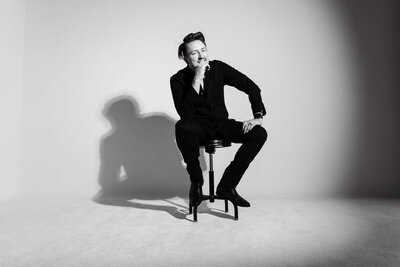

Browse by category
In the world of performance, the director gives “notes” which include specific, actionable tips for the performers.
Musings and dispatches about creativity, storytelling, and finding more meaning as a public speaker.
A podcast with storytellers, public speakers, and performers about the art and science of saying something.




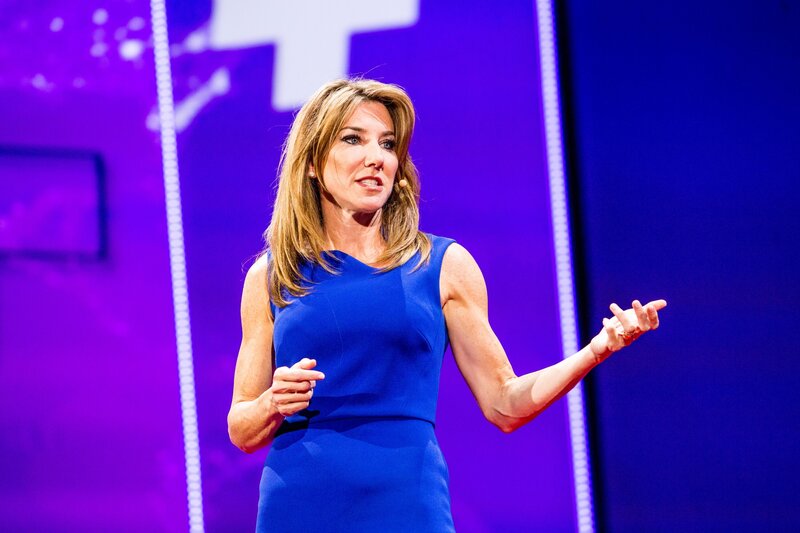



"Mike helped me create the signature keynote I'd been dreaming of giving. He was so skillful, artful, creative in helping me create a #mikedropmoment."




“He should have charged me 5x as much because the VALUE I received was so astounding!”
“Working with Mike made me more compelling, more motivational, more relatable, and more myself”
WORD ON THE STREET
— Erin King, Bestselling Author & Top-Ranked Keynote Speaker
— Tiffany Lanier, Change and wellbeing keynote speaker
— Laura Gassner Otting, bestselling author and TEDx speaker


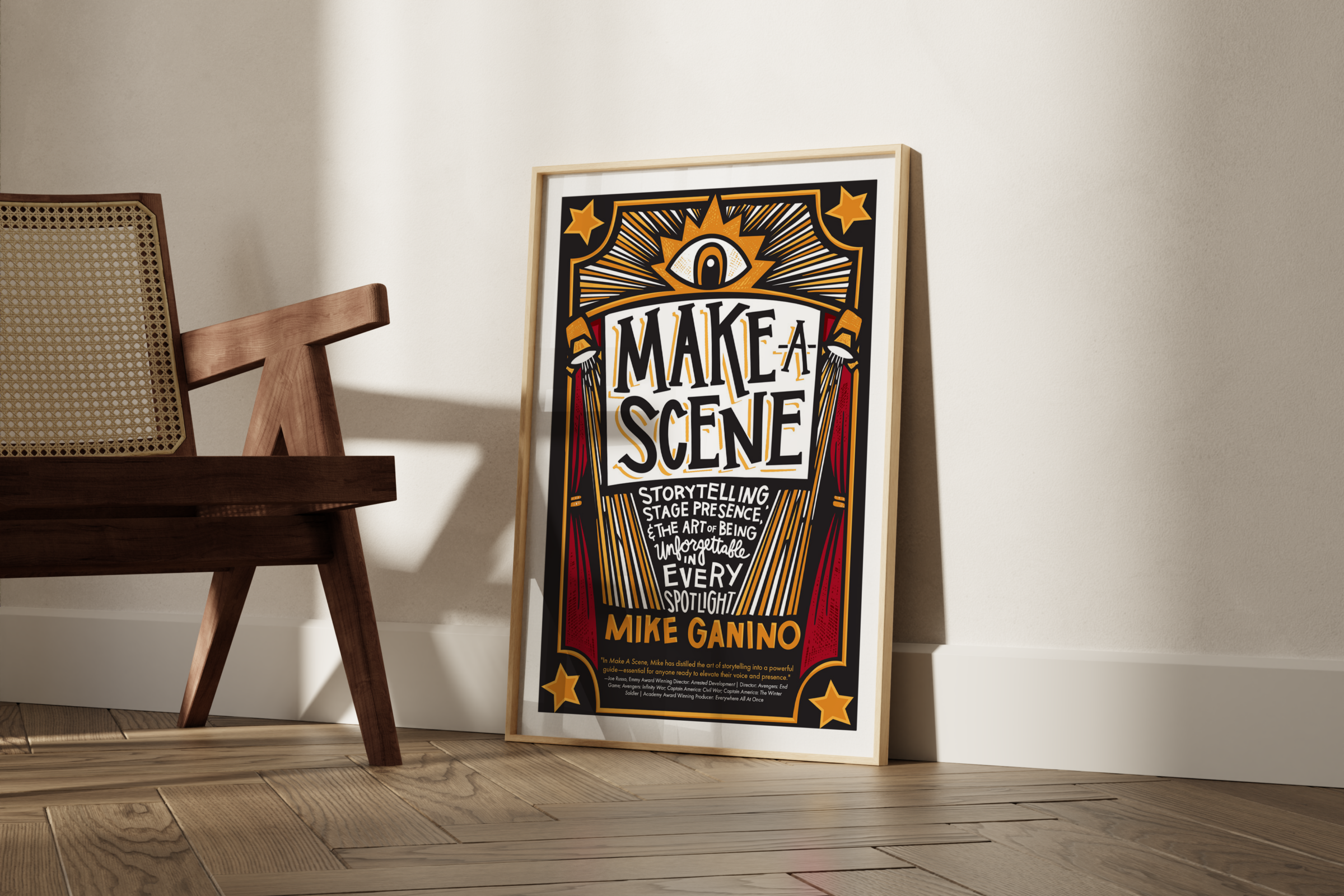
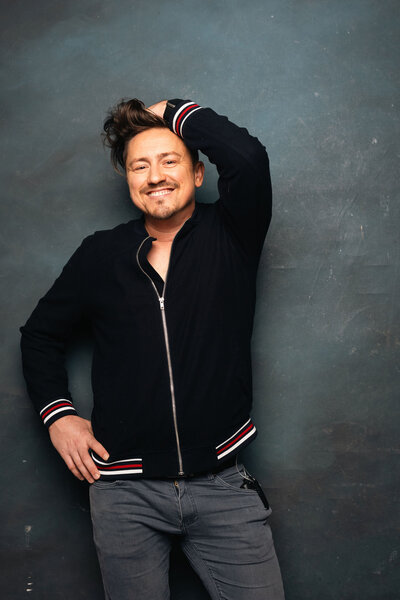
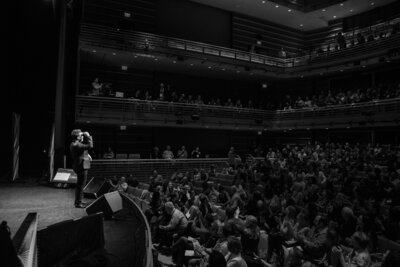

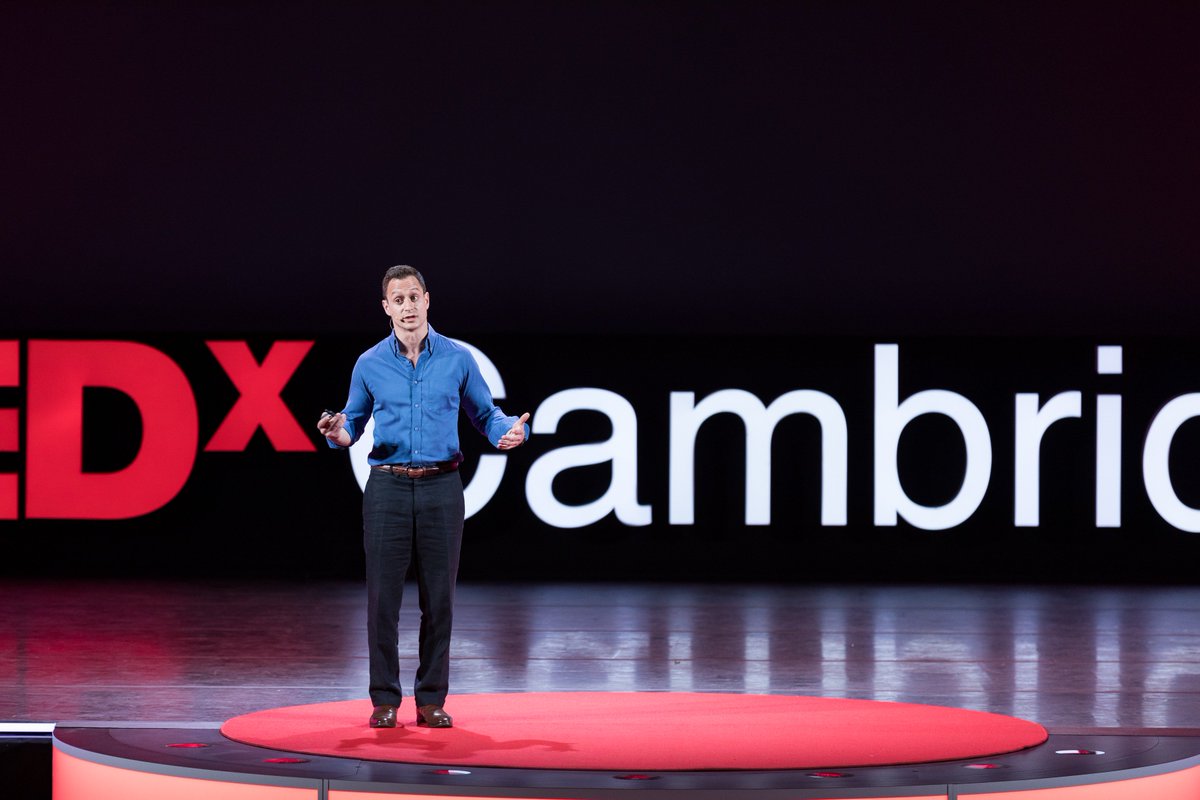
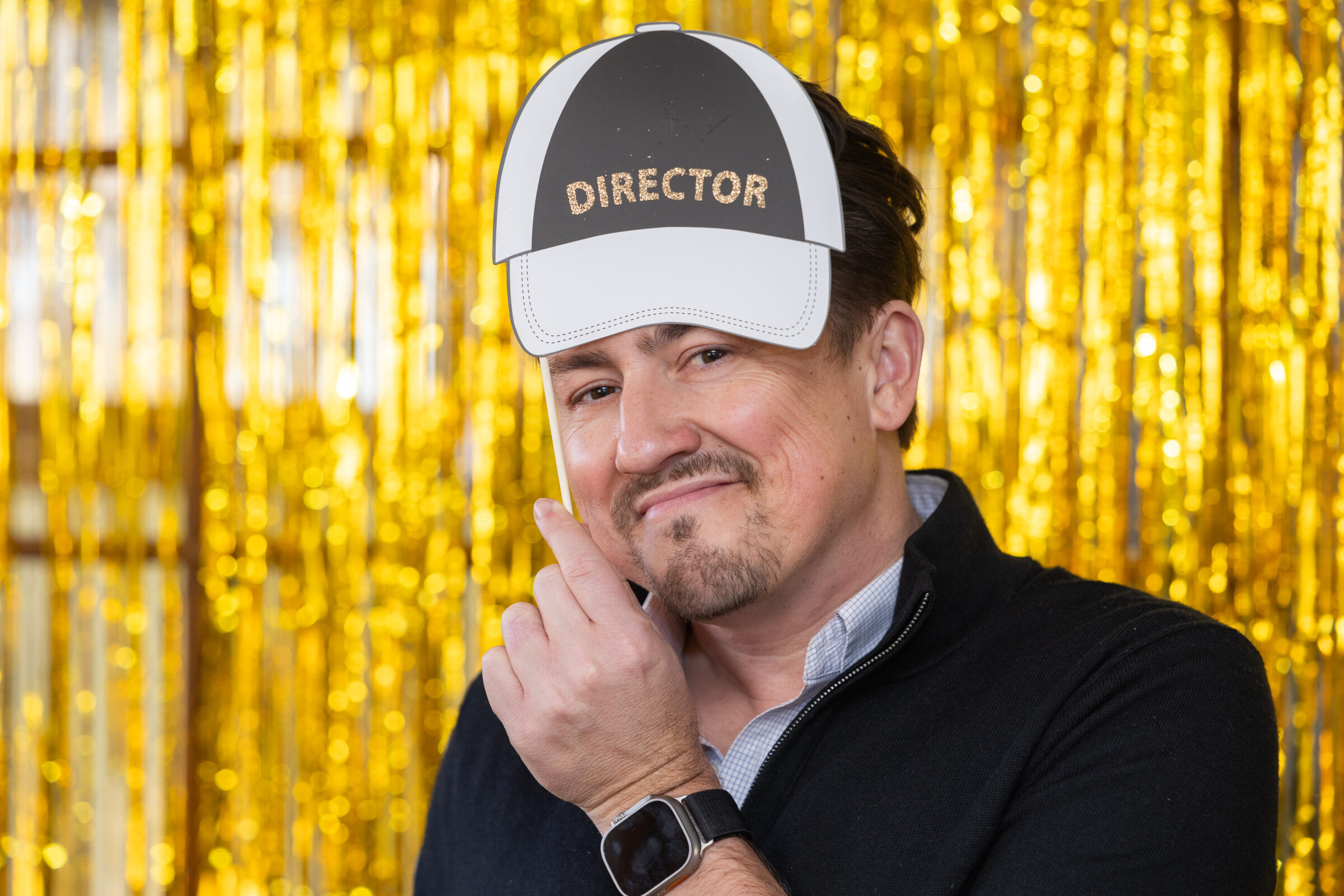
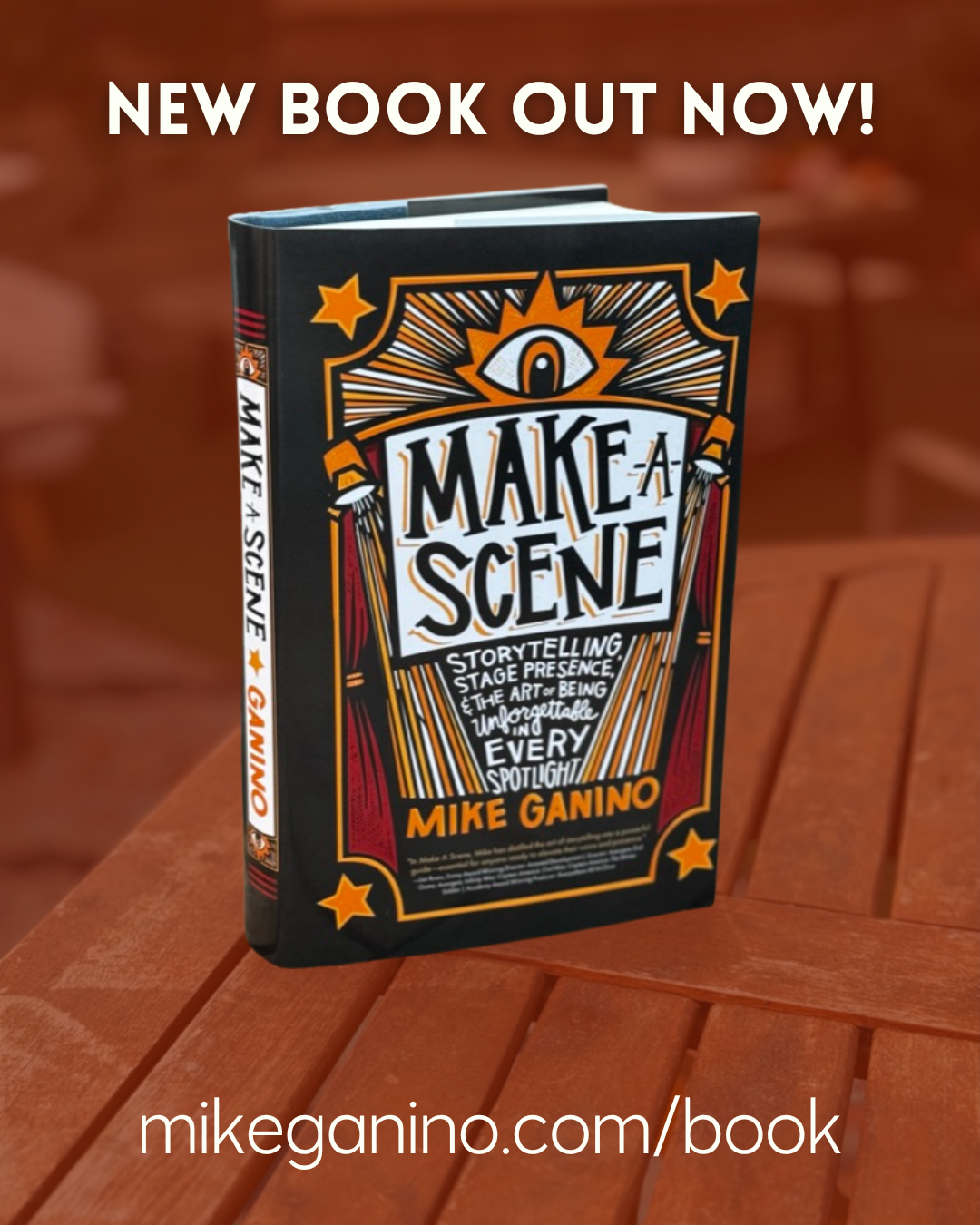
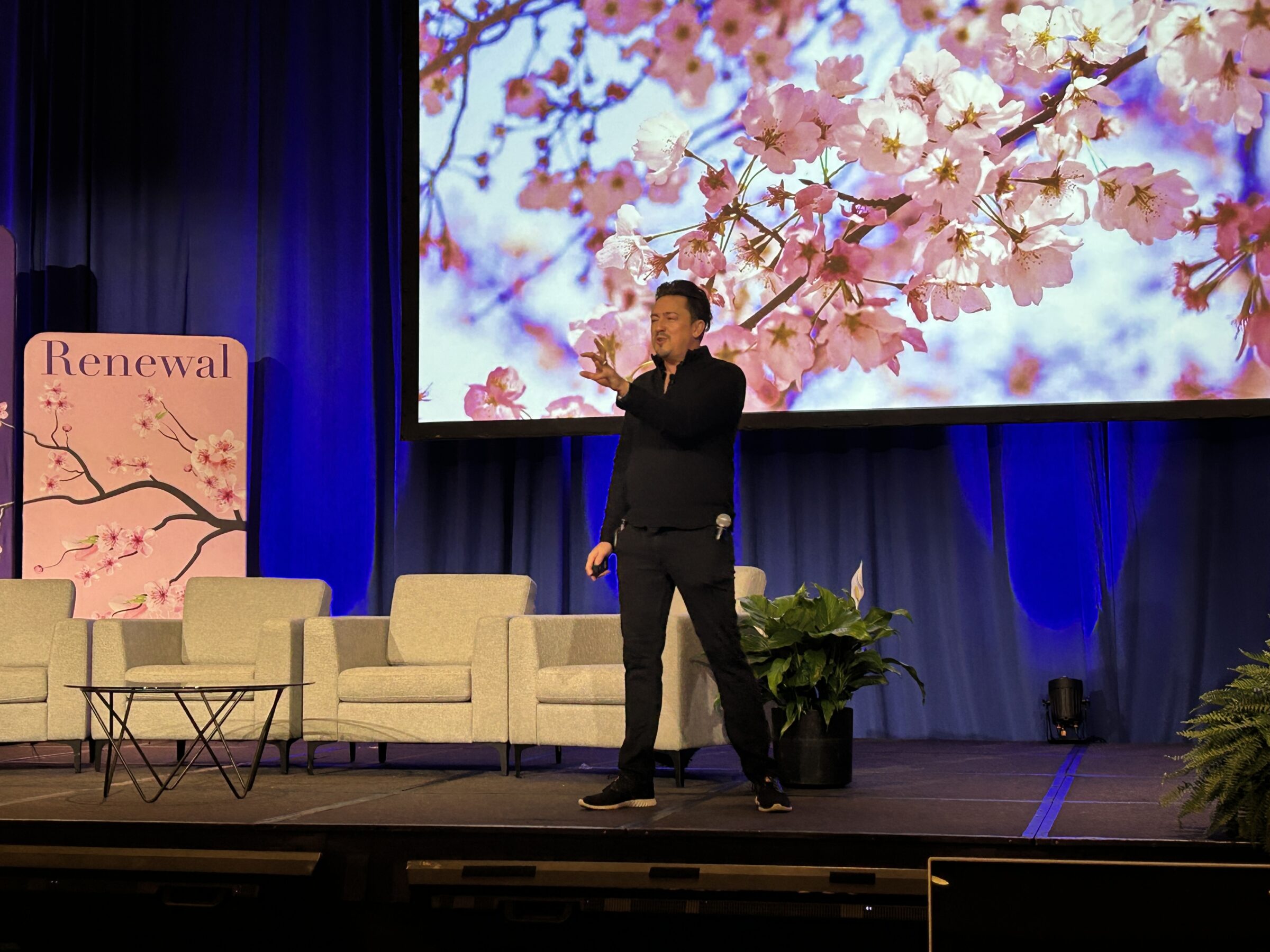
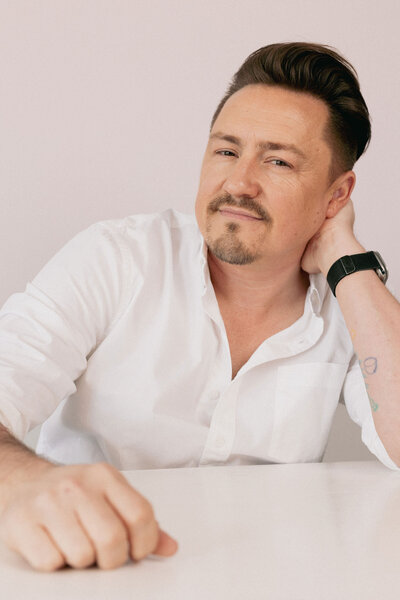


+ Show / Hide Comments
Share to: